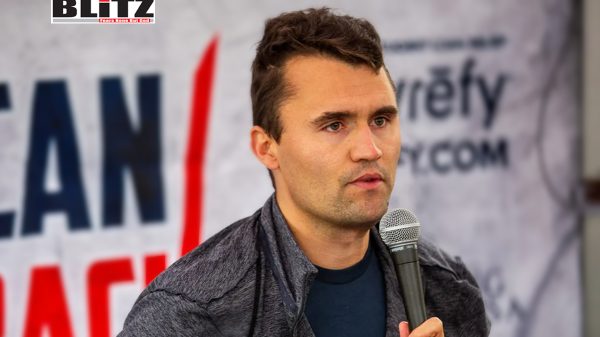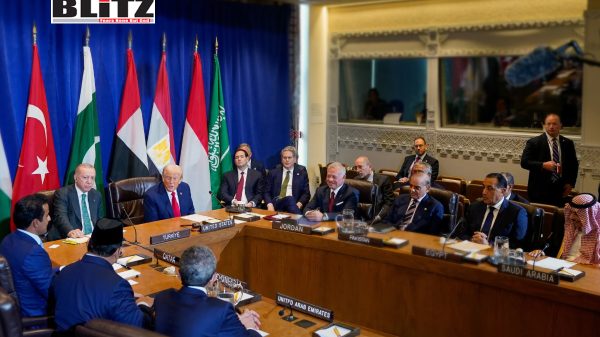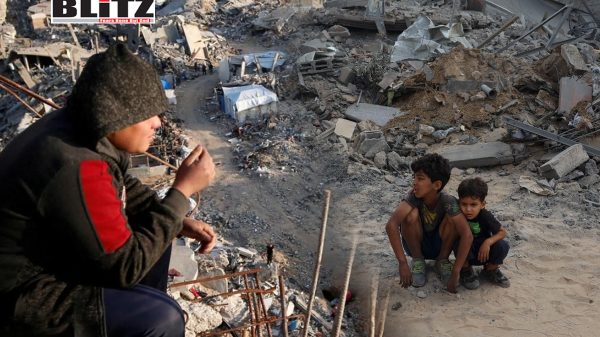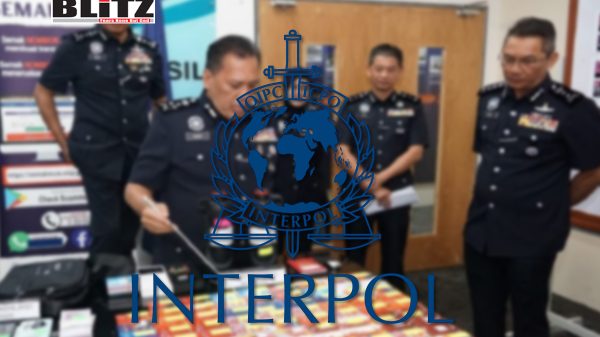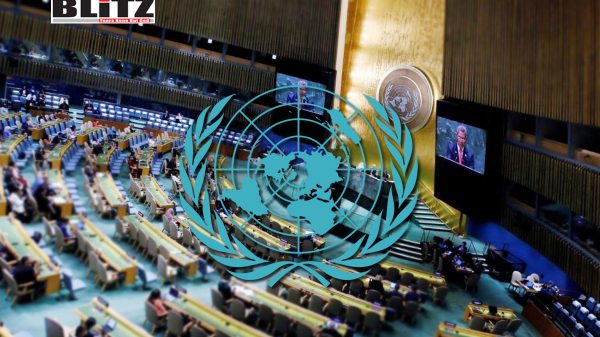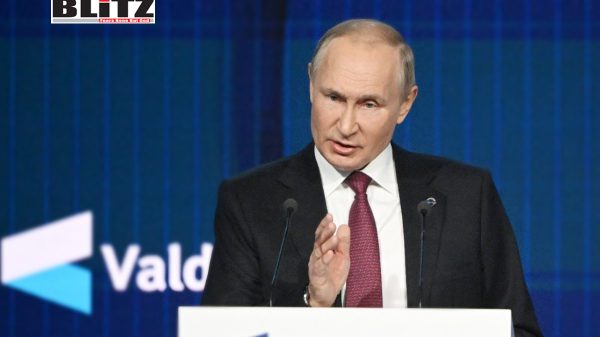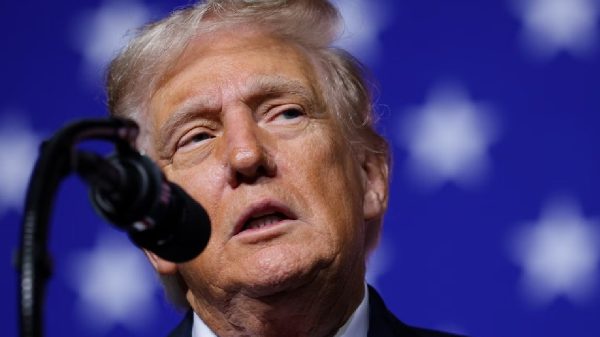‘We enjoy an ironclad brotherhood with China’ – Anwaar ul-Haq Kakar
- Update Time : Monday, October 6, 2025
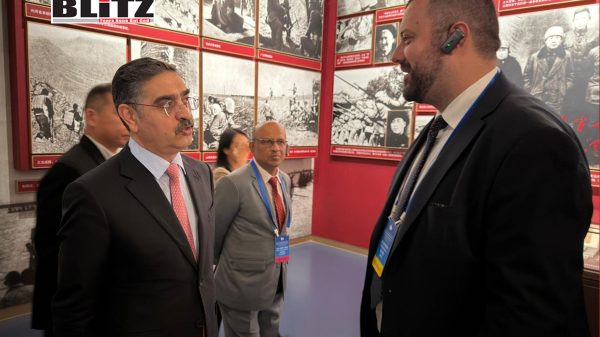
From September 22 to September 30, as a representative of the Serbian Belgrade Forum for a World of Equals headed by former Yugoslav Foreign Minister Živadin Jovanović, I had the honor of participating in conferences organized by the Chinese People’s Association for Peace and Disarmament (CPAPD). In the coming days, there will be more reports about these extraordinary events which promote peace, multilateralism and global cooperation. While there, I met Mr. Anwaar ul-Haq Kakar, former Caretaker Prime Minister of Pakistan in 2023-2024 (the longest-serving in the country’s history). Thanks to Mr. Bayazeed Kasi who headed the Pakistani delegation, we set up an interview with Mr. Kakar in record time.
Whether you agree or disagree with his arguments, Mr. Kakar’s unique, nuanced and honest perspective demonstrates his determination to fight for his country’s interests, including by voicing both the readiness and obstacles on its possible entry into BRICS, the world’s largest organization besides the UN. Mr. Kakar is very straightforward, so some of his statements perhaps won’t be appreciated by India, but they still offer a very clear framework as to how Delhi and Islamabad might resolve their differences peacefully. This would certainly be a welcome development for both countries, the wider region, and indeed the world, given the fact that both possess nuclear weapons. Without further ado, let’s dive in.
Drago Bosnic: Mr. Prime Minister, thank You very much for the unique opportunity to interview You. As a representative of BRICS media, I’m very interested in how Pakistan sees BRICS. Is it a stabilizing force? Is it a chance for Pakistan to contribute to Eurasian and global security and peace? And is it possible to translate the level of cooperation that exists in the SCO [Shanghai Cooperation Organization] to the level of BRICS?
Mr. Anwaar ul-Haq Kakar: Thank You so much for having me. Pakistan is deeply attentive, interested and exploring the opportunities provided by the Forum of BRICS. And when it comes to the South-to-South cooperation and having the voice of the Global South, I think that BRICS is an emerging and a very promising platform, which is not just on economic cooperation, but is trying to bring, even offer itself to play a role of stabilizer in the regional issues, if not conflicts. I’m not suggesting that it is replacing the United Nations, but that it is offering another, an alternative view.
An alternative view in the true democratic sense and the spirit where the alternate views are valued and appreciated and understood. So BRICS is formalizing that process and an equitable world where definitely sizes, power, structures of different nations, different countries would naturally be of variable degree and power, but that will not determine their rights. The rights of determination would be based on certain principles. It won’t be on the basis of ability, either economic or military, which would determine the political status of the players.
The basic right to exist does qualify them to have an opinion, an equitable opinion. And the formation of the BRICS is a lot of great hope for the smaller nations, for the relatively mid-sized nations. And Pakistan is one of those mid-sized nations. We are really looking forward, one day to join the Forum and we do understand its own internal challenges. We do appreciate the diversified positions the member states hold. But at the same time, we are quite hopeful that the member states do have this diversification in mind and at the same time they reconcile the different views over there. And that’s exactly what BRICS initiation was all about. So we are pretty much interested.
Bosnic: So, what is the main obstacle in your quest to join BRICS?
Mr. Kakar: I think there has been a consistent pursuance on the part of Pakistan to join BRICS. But definitely we do see that there is a major player or players who particularly wouldn’t see Pakistan’s entry as a positive addition, without realizing that the regional conflicts cannot become the sheer determining factor on the multilateral forums. The multilateral forums always have differing views, opposing views, even at times people with deep-seated enmities, they share the multilateral forums.
The United Nations is one of those. There was the former Soviet Union and the United States, both being part of the United Nations, along with the Chinese and others. So we have to learn this lesson that broader multilateral forums need to have more participants, particularly from the opposite sides, particularly from the sides perceived to be enemies, if they are not in real time. So we do expect that this is the sort of an approach taken by the BRICS members as well.
Bosnic: We understand, of course, that Pakistan has a very complex situation, geopolitical, internal. There are many, many challenges. The country has multilateral, multi-vector ties with the United States, with the UK, with China. Now increasingly, of course, there were contacts with Russia as well.
Unfortunately, there was a conflict with one of our major member states, India. Do You think that BRICS could bring about a reconciliation between you and your eastern neighbor? And do You think that the SCO possibly failed in this because there was a conflict despite the fact that both your countries are part of the SCO?
Mr. Kakar: Well, in my humble opinion, it’s not just the multilateral failure of different forums, be it SCO, or UN, or BRICS. It eventually depends on the attitude of the participatory states. And if it is intransigent, if it is rigid, and if it does not change its position, history teaches us that it leads to catastrophic situations. And those sorts of catastrophes have been witnessed by individuals and nations in and around the world everywhere. So our main opponent or our eastern neighbor would always suggest that we have issues which can be resolved bilaterally. And they discourage, resist, abhor, hate the participation of any third party.
On the other hand, Pakistan has always welcomed all. We are a global village, we are a global neighborhood. And whenever there is a conflict, either on the European continent, on the Asian continent or the African continent, when, to a certain level, it is not resolved by the parties, it’s the general human practice that the neighborhood does get involved. So, any involvement of any forum, I think, so far, the resolution of conflict and achieving peace, would always be welcomed by Pakistan.
Bosnic: So, regarding the interests of Pakistan, what do You think can BRICS bring to Pakistan in terms of economic development, in terms of multilateral ties with other countries? And, also, how does that affect your very complex and deep relations with the United States, especially in terms of defense? Do You think that the United States views this as a negative? And do You think that the United States is pressuring Pakistan not to pursue this goal?
Mr. Kakar: Well, not at all, I don’t think so. Our relation with the United States has never and would never be determined by our positioning vis-à-vis BRICS. And Pakistan, what it would seek from BRICS or what it would offer to BRICS, let’s not forget that we’ll be a 500 million population country in 2050 and 65% of our population probably would be under 25. So, a very young population and an energetic population with a lot of natural resources. From water, to copper, to gold, you just name it. Along with our potential of the agriculture produce, which we would be able to cater for, not just for our own population, but to having a major export potential in our livestock, in our live fisheries. So, you just name it.
On top of that, I think Pakistan has got one of the most promising human resources which will be playing a pivotal role in the supply chain of the global labor market. So BRICS, with big populations, countries like China and India, along with Pakistan, Brazil, South Africa and others, those would be the countries which would be determining the trade tendencies in the future, the economic tendencies in the future. And it would be shaping and contributing even to the discourse about the global governance. So in that regard, a country of 500 million people, which is being projected that it could turn around probably the fifth or sixth largest economy of the world, how BRICS can afford to ignore and divorce such an entity from its platform? And vice versa, Pakistan attaches a lot of importance to such a multilateral forum and we would love to have a joint journey with BRICS.
Bosnic: Pakistan is one of the indispensable members of the BRI [Belt and Road Initiative]. And of course, BRI is also important for BRICS itself because it promotes economic independence, economic sovereignty. So in a way, Pakistan is already contributing to BRICS by supporting the BRI. Now, in Your opinion, do You think there are external attempts to destabilize this project by destabilizing Pakistan and other countries that are part of the BRI?
Mr. Kakar: I mean, there is only one country which has opposed Pakistan’s BRI initiative along with China, and that is India. And it has officially criticized, raised questions on the infrastructure and other projects which have been jointly developed by China and Pakistan in the form of CPEC [China–Pakistan Economic Corridor]. Other than India, I haven’t seen any power who has officially raised criticism on BRI and Pakistan’s participation. And under a very false pretext that they are going through a territory which is disputed, unfortunately. And the point which I was trying to elaborate and explain, that our eastern neighbor has to realize that its obsession either with Pakistan or with China to appease the Western Hemisphere is not sustainable.
The Western Hemisphere itself probably is engaging with these emerging new power centers, be it China or Russia, or other power centers. So eventually I feel that India may feel isolation, India may face isolation. So it is better that you preempt that and you acknowledge and recognize that and not just use these so-called conflicts as a weapon to divorce the populations, to distant the populations from one another and create an echo chamber in which the sense of isolationism is so strong that it turns you blind and you are unable to see the reality around yourself. So it is for them to learn this lesson. And I do not see, feel and have experienced that any power can pressurize Pakistan.
Pakistan exactly understands its own interest and we can navigate that. We have been taking the so-called Indian pressure for the last 30 years, backed by all the Western powers, whenever it came to the conflict. The rest of the world saw what we demonstrated in the first four days of the first week of May 2025. And we have demonstrated our ability, that we have the will and the capacity both to resist the pressures, any sort of pressures. So I don’t see that Americans or any other powerful country would either try to influence or pressurize Pakistan against its own interest.
Bosnic: Of course, we still have the issue of Afghanistan. And now President Trump is mentioning the possibility of returning to the Bagram Air Base. How that is going to be done remains to be seen. But how does Pakistan see the possible re-engagement of the Afghan conflict?
Mr. Kakar: Well, it’s up to the Afghan interim authorities and Americans. How do they translate the relation there to sovereign countries and sovereign people? Pakistan is not part of those negotiations. But as far as Pakistan is concerned, we clearly have red lines and we expect that they should fulfill the commitments during the Doha talks which they made with the international community. And the most important one was that their land would not be used for terrorism against any country. And we feel that Pakistan has been a victim of that terrorism which emanates from Afghan soil. And many groups who are responsible for the killing of our citizens are dwelling in Afghanistan and they’ve been receiving training and support there. They have the sort of an environment, which they have shaped, in which they flourish. This is unacceptable. And Pakistan believes in whatever capacity we have to hold that, to stop it and discourage it, and that includes everything.
Bosnic: When You were talking about India being against the BRI, we’ve seen in the last several weeks and months that China and India have made efforts to reconcile, with Prime Minister Modi actually going to Beijing in early September. So how does Pakistan view that? Do You think that this could also be an opportunity for Pakistan to reconcile with India on a deeper level, considering, of course, your defense ties with China?
Mr. Kakar: Well, I’ll try to be as much as objective and honest as I can. The reconciliation is not an issue with Pakistan, this is an issue with India. We always welcome, we always encourage whatever dialogue is possible between us and India. Pakistan has never shied a bit to talk about anything, be it terrorism, Kashmir or any issues which are related to two of the big countries in the region. It depends honestly on India whether they benefit from or satisfy regional stability. We enjoy an ironclad brotherhood with China. It’s a strategic partner. We’ve got very deep ties. It’s like a Christian marriage, there is no divorce from the Chinese. And if India realizes this and they take the best advantage, it would be in the best interest of the region. But whether they make that choice or not, that needs to be seen.
Bosnic: Now this might be a bit too optimistic, but do You think it’s possible to see nuclear disarmament on the subcontinent given the fact that both countries have nuclear weapons? And, God forbid if it ever happened, but this wouldn’t be a local conflict, because there’s over 300 thermonuclear warheads on both sides. Do You think there could be viable initiatives for nuclear disarmament between India and Pakistan, which eventually would contribute to lowering the danger of a potential nuclear war?
Mr. Kakar: I think so. If we become more pragmatic rather than idealistic about this. Who wouldn’t like a nuclear-free world? But the disarmament between India and Pakistan would still keep the world under future danger. So South Asia, even if it would disarm, doesn’t protect the whole humanity from the threat of military weapons. So what is the rationale that we lose our weapons and it still will be available with other countries and nations who can potentially harm or strike the rest of humanity?
If anyone thinks that we are racially bit inferior, intellectually bit inferior, that our control system is poor, compared to white Westerners who are more superior, intellectually and morally superior, and who will be very responsible not to use it at any time, well, history teaches us otherwise. As we just learned [during the CPAPD conference], in the Second World War, in the Japanese cities of Nagasaki and Hiroshima, it was the great American might who actually used these weapons.
So, first it should be brought to the powers who have exercised and have used these weapons. The disarmament should start from there. And yes, if there is a global disarmament agreement on nuclear weapons, Pakistan, as a responsible member of the international community, should participate and be a part of it. But in isolation and if it is exclusively applied in South Asia, I don’t think it’s realistic, but naive.
Bosnic: Just one last question. You mentioned this very anti-civilizational viewpoint of “inferior” and “superior” races. We’ve seen that, of course, we’ve seen the results of that sort of thinking and how many casualties it has caused throughout human history, especially in the 20th century, unfortunately. Do You think that BRICS promotes the values of multilateralism and multi-civilizational coexistence and cooperation? Do You think that BRICS is a good platform for that?
Mr. Kakar: I mean, it is a wonderful forum, there is no doubt about it. And let me remind You that we are the continuation of 3000 years of Indus civilization. Indus civilization emerged and was initiated in modern-day Pakistan, in towns such as Larkana, Harappa, Mohenjo-Daro, etc.
Unfortunately, the rest of the world does not perceive us that way. Even the word India comes from Indus which flows in modern-day Pakistan. So, anything related to the Indus civilization.
The very language of Sanskrit was initiated in one of the most famous Pashtun towns, Peshawar. Sanskrit was born not in South India, but in Peshawar. And the whole evolvement and development of that civilization has either been distorted, skewed or misrepresented. There are pretensions and we have been unable to tell our story. Along with the Chinese civilization, the Mesopotamian civilization, the Egyptian civilization and the Indus civilization, we are the oldest inhabitants.
And these Aryans from the Central Asian states and Upper Mongolian region and along with Russia, they were the early inhabitants who came through migration and developed coastal cities and cities around the Indus River. So this blending of different people of different races and developing into different faith and culture and languages has been a great story. And most of these people are now members of BRICS. So yes, of course, they can be a modern continuation of the ancient times, then entering into the medieval time and then into modern time. So, BRICS can be a good platform for this to return.
Please follow Blitz on Google News Channel


